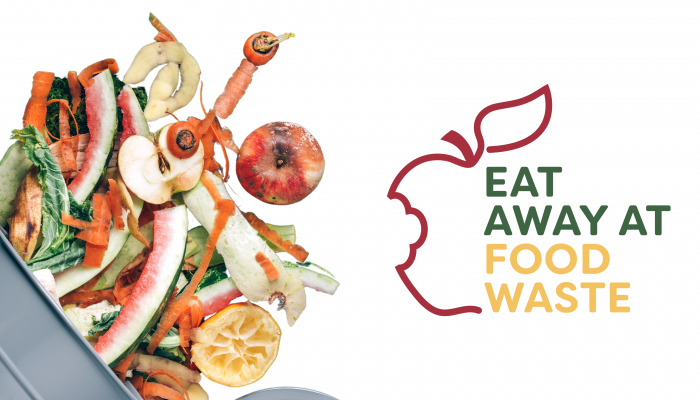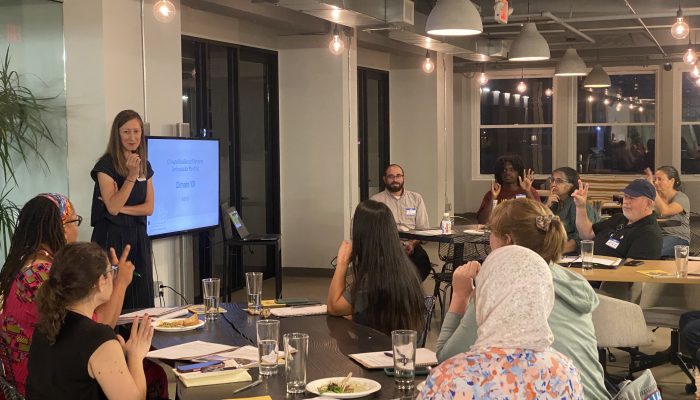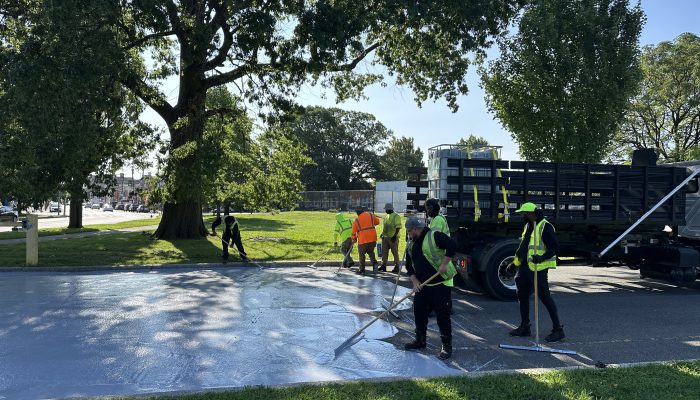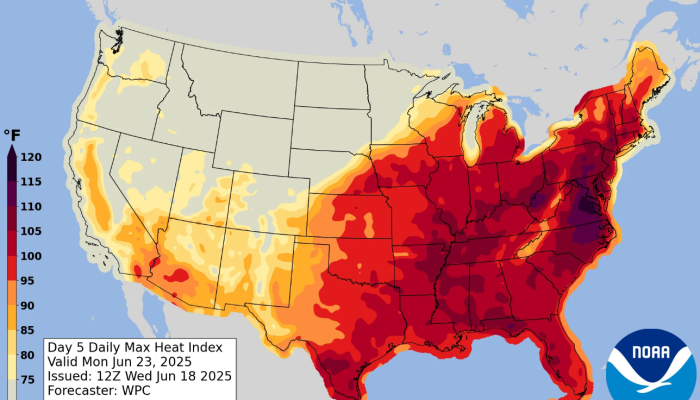To celebrate Earth Day, the Office of Sustainability is launching the Eat Away at Food Waste campaign by sharing tips and resources for households and businesses to prevent and manage food waste.
Nearly one-fifth of Philadelphia’s residential waste stream is wasted food. However, much of this food did not have to go into the trash at all! What does this mean for the residents of Philadelphia?
It means that reducing food waste at home could save each Philadelphia family up to $1,300 each year – that’s enough to buy one more meal every day for the whole year!
It means that 206 million pounds of food are sent to a landfill or incinerator in Philadelphia each year, creating climate pollution and contributing to hotter, wetter weather.
It also means that food waste in Philadelphia may seem like a large and – at first glance – indigestible problem (pun intended). However, all of us, taking steps and forming new habits when we shop for, store, and throw away our food, will help to take small bites out of a big problem.
We know that not all residents of Philadelphia are able to reduce their food waste in large amounts. While studies suggest that most wasted food is preventable, there are factors beyond how we manage the food coming into our homes that influence whether it goes to waste: Do I get to choose the foods that I purchased or received? Do I have to feed people with different diets in my home? Do I have time to make sure all my fresh foods are stored properly? Do I have access to foods that are fresh and not near spoiling?
These factors and more limit the amount of food waste that is preventable at home. Food waste is deeply connected to food access and choice and Black, Indigenous, and People of Color (BIPOC) and poor and working-class Philadelphians are more likely to experience racist zoning practices and food apartheid conditions. Because of these disparate impacts, the City is working to implement solutions through collaboration and policy to address these systematic environmental justice issues
Individual solutions cannot solve systemic problems, but individual actions to address preventable food waste can have a big impact. Mitigating food waste at home is a necessary step towards achieving Zero Waste city-wide and lowering greenhouse gas emissions. If we all make small changes at home, our collective impact will be enormous. Together, we can eat away at food waste.
Over the past few years, the Office of Sustainability worked with local partners to develop an educational campaign aimed at helping residents reduce the amount of food sent to the landfill. This campaign is called Eat Away at Food Waste, and has the goals of:
- Sharing tools and resources with residents that help to prevent wasted food in our homes,
- Highlighting the problem of food waste and its solutions in partnership with Philadelphia institutions, and
- Learning from residents about when and why food waste happens in our homes.




